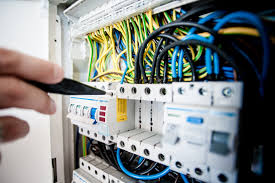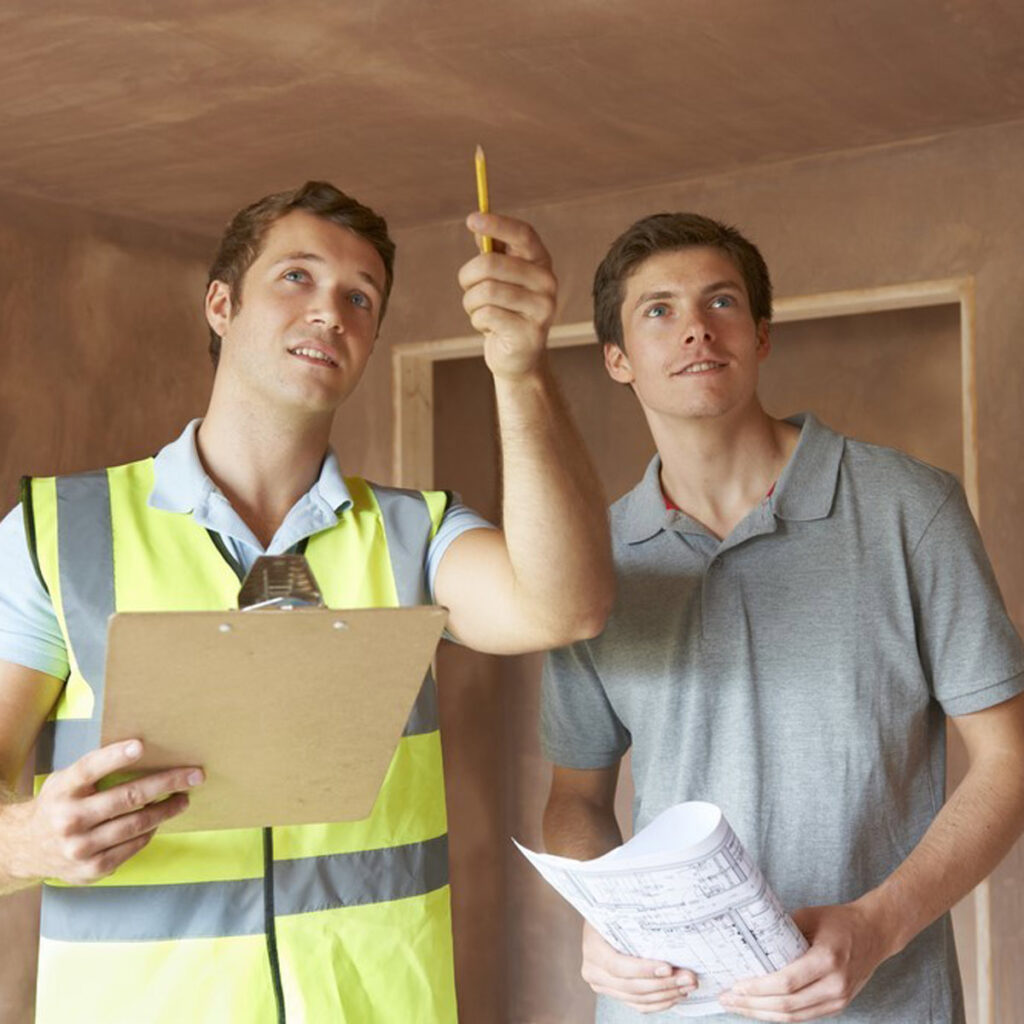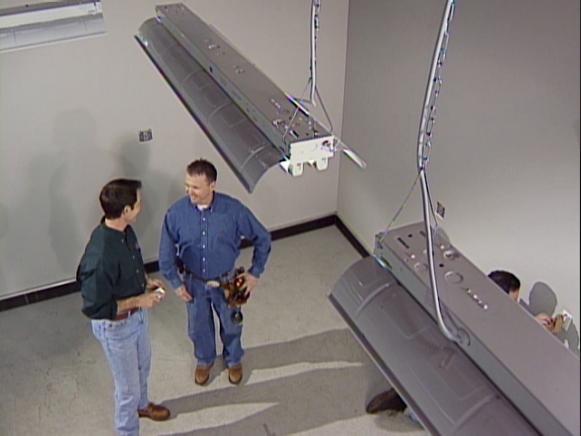ELECTRICAL INSPECTION INFORMATION
GENERAL INFORMATION
Approval of Non-Listed Electrical Equipment
Electrical Service Panel Upgrades
Electrical Receptacle and Switch Installation Requirements (Commercial and Industrial)
Equipment Suspended of Mounted on Roofs Floors or Walls
Field Coordinators Map (30MB)
Generators – Permit Requirements
Installation of Exterior Light Fixture Support Pole Bases
Knob and Tube Wiring
Energy Commission – Building Energy Efficiency Standards
PG&E Meter Releases
Pre-Final Meter Request Form
Utility Meters: How to Get or Replace a Meter
KITCHEN AND BATH LIGHTING
Residential Lighting T-24 Energy Requirement Design Guide
PHOTOVOLTAICS
Electric Vehicle Charging System Permit Requirements (Single-Family and Duplexes)
Solar Photovoltaic Installations
POOLS & MISC
Portable Spa Inspection Checklist
Swimming Pool Construction Inspections
ELECTRICAL INSPECTION CHECKLISTS
Healy Dispenser and Similar Installation Checklist

The Role of Annual Electrical Inspection & Maintenance
Electrical connections play a vital role in the smooth running of a home. There are times when these connections fall short. It is then that most people think of calling an Electrician to have things fixed. However, when everything is okay, most homeowners do not even think of anything like annual maintenance. To be on the safe side, yearly electrical inspections should never be ignored.
Inspections are beneficial in many ways. For instance, they might help you unearth looming electrical issues, which would have otherwise been costly to repair. Not yet convinced, here are some reason to schedule routine electrical inspections.
Fire Safety
Electrical faults are of the main causes of home fires at home. These fires often emanate from faulty wirings and electrical fixtures. Unfortunately, these electrical elements are often blamed after the damage has already been done. In light of this, it is imperative for a homeowner to have an annual inspection to ensure that wirings and all connections are safe.
Safety
The safety of the occupants in your home is another important reason to invest in annual electrical inspections. Regular inspections often check for electrical anomalies like possible overloading, outdated wiring, or risk of electrical shocks. Ignoring routine electrical inspection is tantamount to putting the safety of the occupants at risk.
Adherence to Local Electrical Codes
Having a functional home does not always mean that everything is okay. A Newly built home should adhere to electrical codes, which are subject to change or get revised from time to time. This means that in a couple of years, some electrical fixtures in your home are bound can be deemed unsafe. Annual maintenance can help you discover this and make necessary changes before it becomes too late.

Permits
Definition List
Notice of Correction (NOC):
A formal notice of items that need to be corrected that were identified by an inspector.
Notice of Violation (NOV):
A formal notice of at least one specific area of non-compliance with the Idaho Statutes & Rules as administered by the Division of Building Safety.
Enforcement Permit:
An Enforcement Permit is issued only by a state inspector and only in cases where a contractor or homeowner has failed to purchase a required permit for work already completed. Fees charged for an Enforcement Permit are double the original amount due to the failure to permit.
What is a permit?
A permit grants the holder authorization to perform specific construction and/or installation work. Permits are assigned a unique document number which is required when requesting inspections and approval of the work.
What to do when you purchase your permit?
If the inspector notes deficiencies during the inspection that cannot be fixed immediately, corrections must be made.
Homeowners Performing Electrical Installations
The Electrical Program exists to protect and safeguard life, health, and property of the citizens of Idaho from hazards associated with the use of electricity by ensuring that all electrical installations within the state comply with the most current safety codes and electrical standards. It is expected that homeowners performing electrical installations in the State of Idaho possess the skills and knowledge necessary to install electrical equipment safely and in a workmanlike manner.

Building Department
Inspections due to permits issued by the Building Department will continue as listed below. Communications with the Building Department will be available to the public through US Postal Service, telephone and email.
To do its part in flattening the curve on Coronavirus, the Town of Ware Building Department will perform inspections as follows:
We will continue to conduct inspections of occupied buildings on a case by case basis. Please call the office to schedule and discuss for inspections and inform us if anyone in your home is showing any signs of illness, and please advise us ahead of time if you are uncomfortable having an Inspector entering your home so we can make other accommodations at the discretion of the Inspector. This is only during this State of Emergency.
Annual/Periodic Inspections will be postponed until after the declaration
The Town of Ware is using an online permitting system to help keep contractor and homeowners aware of every stage of the permitting process through an online portal called Viewpoint. Contractors can upload applications, plans, required documents and pay fees directly. Once applications are submitted, you are notified via email every step of the way!
To ensure life safety standards, the following items may be considered in the scope of the Inspections:
Proper egress
Working emergency signage and lighting
General unsafe or unsanitary conditions
Posted occupant load where required
Visible fire protection systems kept in good order
Fire detection and prevention systems in working condition
Mechanical systems and spaces in good order
Mission Statement
primary mission is to safeguard the public, promote the health, safety and welfare of the inhabitants of the Town of Ware through enforcement of the applicable codes and ordinances. believe in equitable treatment of all individuals regardless of circumstances, and strive to enforce all building codes in a fair and considerate manner.
Tips for Getting the Most out of a Home Inspection
A proper home inspection is your best defense against buying a property that will be a home improvement nightmare. Use these tips to get the most out of your home inspection
Show Up
Make sure you are present for the home inspection and be prepared to ask questions and point out specific problems you’d like to check out further. This will be the first time your home inspector has been at the property, so your knowledge of potential issues is invaluable.
Use Someone You Trust
Doing your homework to find your own home inspector can really give you peace of mind. While your realtor probably has a few inspectors that he or she can recommend, you should really find your own. An impartial, third-party home inspector won’t have any loyalty to your realtor and will be able to talk freely and frankly about potential issues. You may have to pay a little bit extra for a quality home inspector, but compared to the purchase price of a house, it’s well worth it.
Don’t be Afraid to Ask Questions
The reason you hired a home inspector is because this person has the necessary knowledge to evaluate whether or not this potential property has any issues that would make purchasing the home a bad decision. And you should respect your home inspector’s knowledge and time. However, if something doesn’t look right or you don’t understand what a home inspector is referring to, speak up. It’s better to ask a question now than have an issue arise after you’ve purchased the property.
Get Pictures for Proof
Any home inspector worth using will bring a camera along on the inspection. The inspector will also be heading into places that you won’t want to go if you don’t have to (the roof, crawl space, under decks, the attic, etc.). Ask your inspector to photograph any potential issues that arise so you can see the issue for yourself and make sure you fully understand the problem.